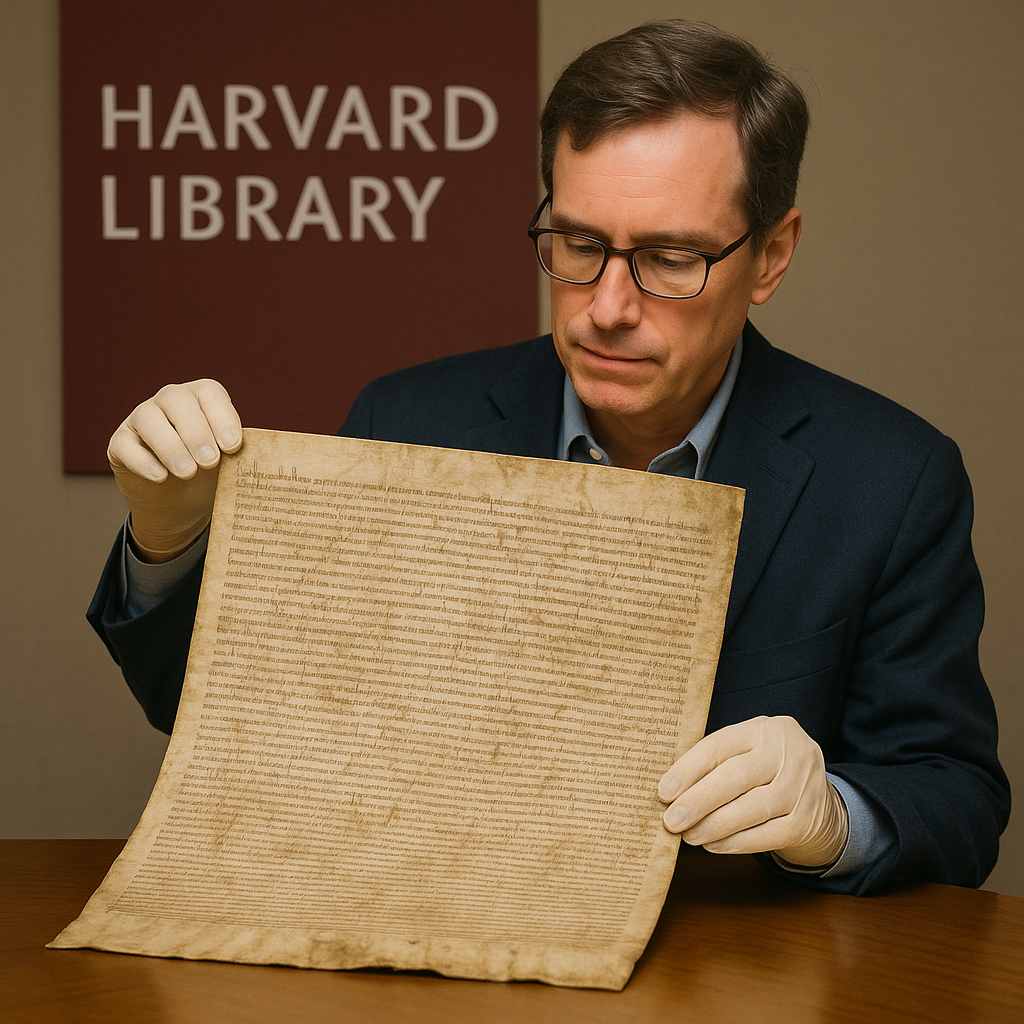Tincy Jose, a nurse at Queen Elizabeth Hospital in Norfolk, was really shocked when she found out she had Parkinson’s disease. But instead of letting it bring her down, she decided to use her experience to help others with the condition. Tincy first noticed something was wrong when she was walking in the hospital and later felt a tremor in her hand at church. After reading about a doctor with Parkinson’s, she realized her symptoms were similar. When she got her diagnosis over the phone, she felt like she was in a different world and couldn’t speak. But her boss at work reassured her that there were treatments available and she could still have a good career and spend time with her kids.
It took Tincy about a year and a half to tell all her colleagues about her diagnosis, but she realized that it was important to do so. She felt like it was her calling to raise awareness about the need for people with Parkinson’s to get their medication on time in the hospital. Tincy is part of a group of NHS workers with Parkinson’s who are working to make sure patients get their medicine when they need it. Parkinson’s UK says that 58% of patients in the hospital don’t get their medicine on time. Tincy has also met with a government minister to talk about adding Parkinson’s to the list of conditions that get free prescriptions and hiring more specialists.
Tincy wants to show other people with Parkinson’s that there is still a good life to be lived. Even though she has symptoms like tiredness, stress, and trouble writing, she has been able to move up in her career. She recently won an award for Best Nurse of the Year. Tincy believes that to live well with Parkinson’s, you have to stay positive, active, and kind to yourself. She says it’s important to get support and stay determined to overcome the challenges that come with the disease. Tincy’s son calls her a super mom because she keeps working and taking care of her family, even with her diagnosis, and she’s grateful for their support.
In conclusion, Tincy Jose’s journey with Parkinson’s disease has led her to become an advocate for others with the condition. She has found purpose in raising awareness about the importance of getting medication on time and has shown that there is still a good life and career after a diagnosis. Tincy’s story is inspiring for others going through similar challenges and shows how important it is to have support and stay determined.
Original news source: Parkinson’s disease: ‘You can have a career after diagnosis’ (BBC)
Listen:
Slow
Normal
Fast
Vocabulary:
| 1 | diagnosis | The act of identifying a disease or condition |
| 2 | tremor | A shaking movement, especially in the hands |
| 3 | medication | A substance that is used to treat or cure an illness |
| 4 | advocate | A person who publicly supports or recommends a particular cause or policy |
| 5 | symptoms | The signs or indications of a disease or condition |
| 6 | awareness | Knowledge or understanding of a particular issue or situation |
| 7 | specialist | A person who is highly skilled or knowledgeable in a specific field |
| 8 | challenges | Difficulties or obstacles that need to be overcome |
| 9 | support | Help, encouragement, or assistance given to someone |
| 10 | determined | Having a strong desire to achieve something and not giving up easily |
| 11 | purpose | The reason for which something is done or created |
| 12 | overcome | To successfully deal with or overcome a problem or difficulty |
| 13 | career | A person’s occupation or profession |
| 14 | tiredness | The state of feeling exhausted or fatigued |
| 15 | grateful | Feeling or showing appreciation or thanks for something |
Group or Classroom Activities
Warm-up Activities:
– Charades
Instructions: Divide the students into small groups. Give each group a set of cards with different actions related to the article (e.g. walking, tremor, speaking, writing). One student from each group will choose a card and act out the action without speaking, while the other group members try to guess what it is.
– News Summary
Instructions: Ask the students to individually read the article and then write a summary of the main points in their own words. Afterward, have them pair up and share their summaries with each other. Encourage them to discuss any differences or similarities in their summaries.
– Opinion Poll
Instructions: Divide the students into pairs. Give each pair a list of statements related to the article (e.g. “People with Parkinson’s should disclose their diagnosis to their colleagues”). Have each student in the pair take turns expressing their opinion on each statement and explaining their reasoning. Encourage them to ask follow-up questions and engage in a discussion.
– Vocabulary Pictionary
Instructions: Create a list of vocabulary words from the article (e.g. Parkinson’s disease, diagnosis, medication). Divide the students into small groups. Give each group a piece of paper and a vocabulary word. One student from each group will have to draw a picture representing the word, while the other group members try to guess what it is.
– Speed Summarizing
Instructions: Divide the students into pairs. Set a timer for 2 minutes. Each student will take turns summarizing the article to their partner within the given time limit. After the timer goes off, the roles will switch, and the other student will summarize. Encourage them to focus on the main points and key details of the article.
Comprehension Questions:
1. How did Tincy first realize something was wrong with her health?
2. How did Tincy feel when she received her Parkinson’s disease diagnosis?
3. Why did it take Tincy a year and a half to tell her colleagues about her diagnosis?
4. What is Tincy’s goal in raising awareness about Parkinson’s disease in hospitals?
5. According to Parkinson’s UK, what percentage of patients in the hospital do not receive their medication on time?
6. What symptoms does Tincy experience due to her Parkinson’s disease?
7. How has Tincy been able to advance in her career despite her diagnosis?
8. Why does Tincy’s son call her a super mom?
Go to answers ⇩
Listen and Fill in the Gaps:
Tincy Jose, a nurse at Queen Elizabeth Hospital in Norfolk, was really shocked when she found out she had Parkinson’s disease. But instead of letting it bring her down, she decided to use her experience to help (1)______ with the condition. Tincy first noticed something was wrong when she was walking in the hospital and later felt a tremor in her hand at church. After (2)______ about a doctor with Parkinson’s, she realized her symptoms were similar. When she got her diagnosis over the (3)______, she felt like she was in a different world and couldn’t (4)______. But her boss at work reassured her that there were treatments available and she could still have a good career and spend time with her kids.
It took (5)______ about a year and a half to tell all her colleagues about her diagnosis, but she (6)______ that it was (7)______ to do so. She felt like it was her calling to raise (8)______ about the need for people with Parkinson’s to get their medication on time in the hospital. Tincy is part of a group of NHS workers with Parkinson’s who are working to make sure patients get their medicine when they need it. Parkinson’s UK says that 58% of patients in the hospital don’t get their medicine on time. Tincy has also met with a government minister to talk about adding Parkinson’s to the list of conditions that get free (9)______ and hiring more specialists.
Tincy wants to show other (10)______ with Parkinson’s that there is still a good life to be lived. Even though she has symptoms like tiredness, stress, and trouble writing, she has been able to move up in her (11)______. She recently won an award for Best Nurse of the Year. Tincy believes that to live well with Parkinson’s, you have to stay (12)______, active, and kind to yourself. She says it’s important to get support and stay determined to overcome the challenges that come with the disease. Tincy’s son (13)______ her a super mom because she keeps working and (14)______ care of her (15)______, even with her diagnosis, and she’s grateful for their (16)______.
In conclusion, Tincy Jose’s journey with Parkinson’s disease has led her to become an advocate for others with the condition. She has found purpose in raising awareness about the importance of getting medication on time and has shown that there is still a good life and career after a diagnosis. Tincy’s story is inspiring for others going through similar challenges and shows how important it is to have support and stay determined.
Go to answers ⇩
Discussion Questions:
Students can ask a partner these questions, or discuss them as a group.
1. What is Parkinson’s disease?
2. How do you think Tincy felt when she found out she had Parkinson’s disease?
3. How would you feel if you were in Tincy’s situation?
4. Do you think it was brave of Tincy to share her diagnosis with her colleagues? Why or why not?
5. What do you think about Tincy’s decision to raise awareness about the need for people with Parkinson’s to get their medication on time in the hospital?
6. Do you think it is important for the government to add Parkinson’s to the list of conditions that get free prescriptions? Why or why not?
7. How do you think Tincy’s symptoms affect her daily life?
8. Do you know anyone with a chronic illness? How do they stay positive and overcome challenges?
9. What do you think it means to be a “super mom” like Tincy’s son calls her?
10. Do you think it is possible to have a good career and family life while living with a chronic illness? Why or why not?
11. How do you think Tincy stays positive and determined despite her diagnosis?
12. What kind of support do you think is important for someone living with a chronic illness?
13. Do you think Tincy’s story is inspiring? Why or why not?
14. Have you ever faced a difficult situation in your life? How did you overcome it?
15. What advice would you give to someone who has recently been diagnosed with a chronic illness?
Individual Activities
Vocabulary Meanings:
Match each word to its meaning.
Words:
1. diagnosis
2. tremor
3. medication
4. advocate
5. symptoms
6. awareness
7. specialist
8. challenges
9. support
10. determined
11. purpose
12. overcome
13. career
14. tiredness
15. grateful
Meanings:
(A) Having a strong desire to achieve something and not giving up easily
(B) The state of feeling exhausted or fatigued
(C) To successfully deal with or overcome a problem or difficulty
(D) The act of identifying a disease or condition
(E) Feeling or showing appreciation or thanks for something
(F) A person who publicly supports or recommends a particular cause or policy
(G) A person’s occupation or profession
(H) A substance that is used to treat or cure an illness
(I) The reason for which something is done or created
(J) A person who is highly skilled or knowledgeable in a specific field
(K) Knowledge or understanding of a particular issue or situation
(L) A shaking movement, especially in the hands
(M) The signs or indications of a disease or condition
(N) Difficulties or obstacles that need to be overcome
(O) Help, encouragement, or assistance given to someone
Go to answers ⇩
Multiple Choice Questions:
1. How did Tincy Jose feel when she found out she had Parkinson’s disease?
(a) Happy
(b) Angry
(c) Sad
(d) Shocked
2. What made Tincy realize she might have Parkinson’s disease?
(a) Going to church
(b) Talking to her boss at work
(c) Reading about a doctor with Parkinson’s
(d) Walking in the hospital
3. How long did it take Tincy to tell all her colleagues about her diagnosis?
(a) A few days
(b) A few months
(c) About a year and a half
(d) A few hours
4. What percentage of patients in the hospital don’t get their medication on time, according to Parkinson’s UK?
(a) 20%
(b) 75%
(c) 40%
(d) 58%
5. What did Tincy talk to a government minister about?
(a) Hiring more nurses
(b) Adding Parkinson’s to the list of conditions that get free prescriptions
(c) Raising awareness about Parkinson’s
(d) Finding a cure for Parkinson’s
6. What symptoms does Tincy experience because of Parkinson’s disease?
(a) Tiredness, stress, and trouble writing
(b) Headaches, dizziness, and fever
(c) Stomach pain, coughing, and sneezing
(d) Back pain, difficulty breathing, and skin rash
7. What does Tincy believe is important to live well with Parkinson’s?
(a) Taking lots of medication
(b) Staying positive, active, and kind to yourself
(c) Avoiding stressful situations
(d) Giving up on your career
8. What does Tincy’s son call her?
(a) A super mom
(b) A superhero
(c) A champion
(d) A role model
Go to answers ⇩
True or False Questions:
1. Tincy believes in staying positive, active, and kind to oneself in order to live well with Parkinson’s.
2. Tincy’s boss did not reassure her that there were treatments available and she could still have a good career and spend time with her kids.
3. Parkinson’s UK reports that 58% of patients in the hospital do not receive their medicine on time.
4. Tincy Jose, a nurse at Queen Elizabeth Hospital, was diagnosed with Parkinson’s disease.
5. Tincy’s symptoms did not include a tremor in her hand and difficulty walking.
6. Tincy is not part of a group of NHS workers with Parkinson’s who are working to ensure patients receive their medication on time.
7. Tincy took about a year and a half to tell her colleagues about her diagnosis.
8. Tincy has not met with a government minister to discuss adding Parkinson’s to the list of conditions that receive free prescriptions and hiring more specialists.
Go to answers ⇩
Write a Summary:
Write a summary of this news article in two sentences.
Check your writing now with the best free AI for English writing!
Writing Questions:
Answer the following questions. Write as much as you can for each answer.
Check your answers with our free English writing assistant!
1. How did Tincy Jose first realize something was wrong with her health?
2. How did Tincy feel when she received her diagnosis over the phone?
3. Why did it take Tincy a year and a half to tell her colleagues about her diagnosis?
4. What is Tincy working to raise awareness about in hospitals?
5. What advice does Tincy give to others with Parkinson’s disease?
Answers
Comprehension Question Answers:
1. How did Tincy first realize something was wrong with her health?
Tincy first noticed something was wrong when she was walking in the hospital and later felt a tremor in her hand at church.
2. How did Tincy feel when she received her Parkinson’s disease diagnosis?
When she received her Parkinson’s disease diagnosis, Tincy felt like she was in a different world and couldn’t speak.
3. Why did it take Tincy a year and a half to tell her colleagues about her diagnosis?
It took Tincy a year and a half to tell her colleagues about her diagnosis because she felt it was important to do so and raise awareness about the need for people with Parkinson’s to get their medication on time in the hospital.
4. What is Tincy’s goal in raising awareness about Parkinson’s disease in hospitals?
Tincy’s goal in raising awareness about Parkinson’s disease in hospitals is to ensure that patients with Parkinson’s receive their medication on time.
5. According to Parkinson’s UK, what percentage of patients in the hospital do not receive their medication on time?
According to Parkinson’s UK, 58% of patients in the hospital do not receive their medication on time.
6. What symptoms does Tincy experience due to her Parkinson’s disease?
Due to her Parkinson’s disease, Tincy experiences symptoms such as tiredness, stress, and trouble writing.
7. How has Tincy been able to advance in her career despite her diagnosis?
Despite her diagnosis, Tincy has been able to advance in her career and recently won an award for Best Nurse of the Year. She believes that staying positive, active, and kind to herself has helped her overcome the challenges of Parkinson’s disease.
8. Why does Tincy’s son call her a super mom?
Tincy’s son calls her a super mom because she continues to work and take care of her family, even with her Parkinson’s disease diagnosis.
Go back to questions ⇧
Listen and Fill in the Gaps Answers:
(1) others
(2) reading
(3) phone
(4) speak
(5) Tincy
(6) realized
(7) important
(8) awareness
(9) prescriptions
(10) people
(11) career
(12) positive
(13) calls
(14) taking
(15) family
(16) support
Go back to questions ⇧
Vocabulary Meanings Answers:
1. diagnosis
Answer: (D) The act of identifying a disease or condition
2. tremor
Answer: (L) A shaking movement, especially in the hands
3. medication
Answer: (H) A substance that is used to treat or cure an illness
4. advocate
Answer: (F) A person who publicly supports or recommends a particular cause or policy
5. symptoms
Answer: (M) The signs or indications of a disease or condition
6. awareness
Answer: (K) Knowledge or understanding of a particular issue or situation
7. specialist
Answer: (J) A person who is highly skilled or knowledgeable in a specific field
8. challenges
Answer: (N) Difficulties or obstacles that need to be overcome
9. support
Answer: (O) Help, encouragement, or assistance given to someone
10. determined
Answer: (A) Having a strong desire to achieve something and not giving up easily
11. purpose
Answer: (I) The reason for which something is done or created
12. overcome
Answer: (C) To successfully deal with or overcome a problem or difficulty
13. career
Answer: (G) A person’s occupation or profession
14. tiredness
Answer: (B) The state of feeling exhausted or fatigued
15. grateful
Answer: (E) Feeling or showing appreciation or thanks for something
Go back to questions ⇧
Multiple Choice Answers:
1. How did Tincy Jose feel when she found out she had Parkinson’s disease?
Answer: (d) Shocked
2. What made Tincy realize she might have Parkinson’s disease?
Answer: (c) Reading about a doctor with Parkinson’s
3. How long did it take Tincy to tell all her colleagues about her diagnosis?
Answer: (c) About a year and a half
4. What percentage of patients in the hospital don’t get their medication on time, according to Parkinson’s UK?
Answer: (d) 58%
5. What did Tincy talk to a government minister about?
Answer: (b) Adding Parkinson’s to the list of conditions that get free prescriptions
6. What symptoms does Tincy experience because of Parkinson’s disease?
Answer: (a) Tiredness, stress, and trouble writing
7. What does Tincy believe is important to live well with Parkinson’s?
Answer: (b) Staying positive, active, and kind to yourself
8. What does Tincy’s son call her?
Answer: (a) A super mom
Go back to questions ⇧
True or False Answers:
1. Tincy believes in staying positive, active, and kind to oneself in order to live well with Parkinson’s. (Answer: True)
2. Tincy’s boss did not reassure her that there were treatments available and she could still have a good career and spend time with her kids. (Answer: False)
3. Parkinson’s UK reports that 58% of patients in the hospital do not receive their medicine on time. (Answer: True)
4. Tincy Jose, a nurse at Queen Elizabeth Hospital, was diagnosed with Parkinson’s disease. (Answer: True)
5. Tincy’s symptoms did not include a tremor in her hand and difficulty walking. (Answer: False)
6. Tincy is not part of a group of NHS workers with Parkinson’s who are working to ensure patients receive their medication on time. (Answer: False)
7. Tincy took about a year and a half to tell her colleagues about her diagnosis. (Answer: True)
8. Tincy has not met with a government minister to discuss adding Parkinson’s to the list of conditions that receive free prescriptions and hiring more specialists. (Answer: False)
Go back to questions ⇧















